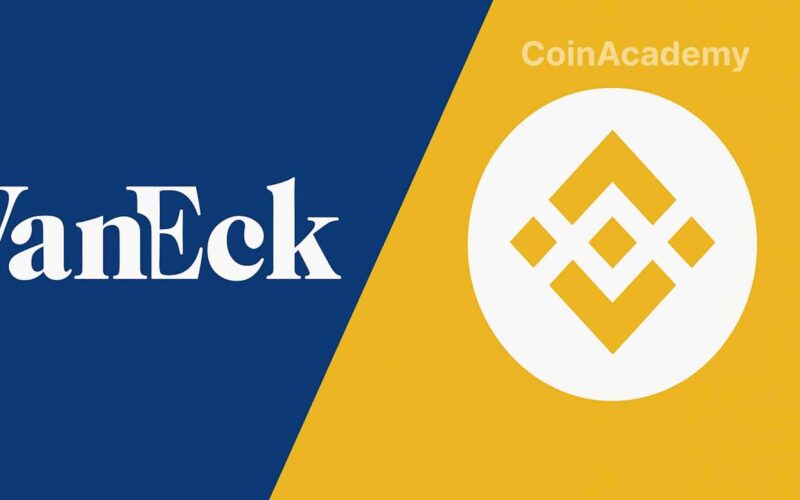VanEck Pursues BNB with Fiduciary Structure for Potential ETF
VanEck, the New York-based investment firm that paved the way for Bitcoin and Ethereum ETFs in the United States, is now looking to expand its offering with a financial product backed by BNB. The company has officially registered a fiduciary structure in the state of Delaware, a preliminary step before formally filing with the SEC.
This new ETF would allow institutional and retail investors to access BNB without directly owning the token. If approved by regulators, it would be the first BNB ETF listed in the United States, further integrating cryptocurrencies into traditional markets.
A Clearly Ambitious Expansion Strategy
VanEck has openly expressed its ambition to cover the crypto ecosystem beyond heavyweight assets like Bitcoin and Ethereum. The company has already filed for ETFs based on the native tokens of Solana (SOL) and Avalanche (AVAX), two blockchains seen as major challengers to the Ethereum model.
The choice of BNB aligns with this strategy. With a market cap exceeding $90 billion, the cryptocurrency associated with the Binance ecosystem is a significant player in DeFi, low fees, and global adoption.
A Market Ready for New Crypto Products
At the time of the announcement, BNB was trading around $600, showing little reaction, indicating a market that anticipates such initiatives or believes the demand for this new ETF will not be significant. Since the approval of Bitcoin ETFs in January 2024 and Ethereum ETFs a few months later, the demand for regulated financial instruments linked to digital assets has continued to grow.
VanEck, as a pioneer in this space, is capitalizing on its strategic advantage. By filing multiple applications, the firm aims to establish itself as a leader in crypto ETFs in the US, competing against firms like BlackRock and Fidelity.
This is about more than just the approval of a new product. If the SEC gives the green light, it would imply implicit recognition of the strength of BNB despite controversies surrounding Binance, and further enhance the legitimacy of the token in the eyes of regulated markets.




